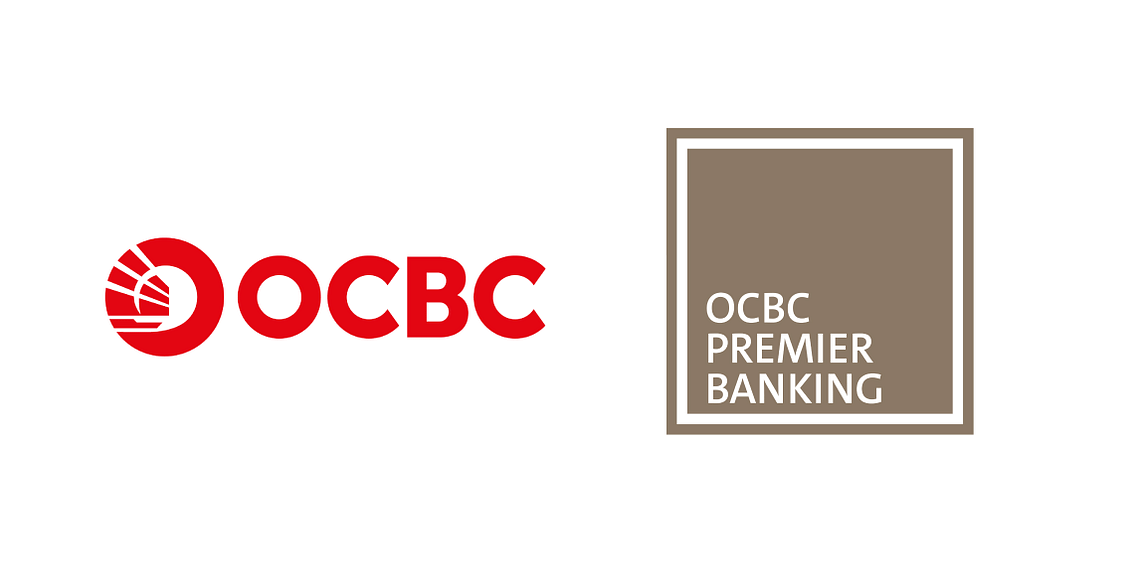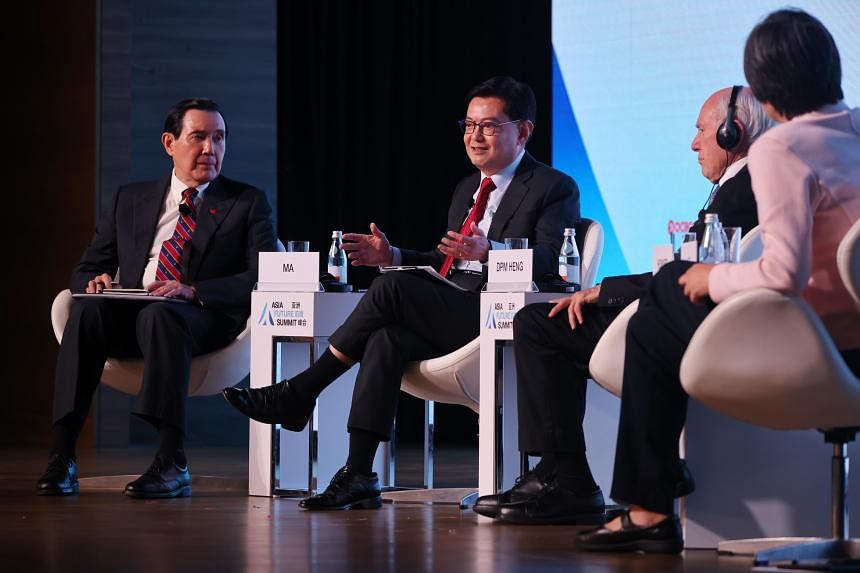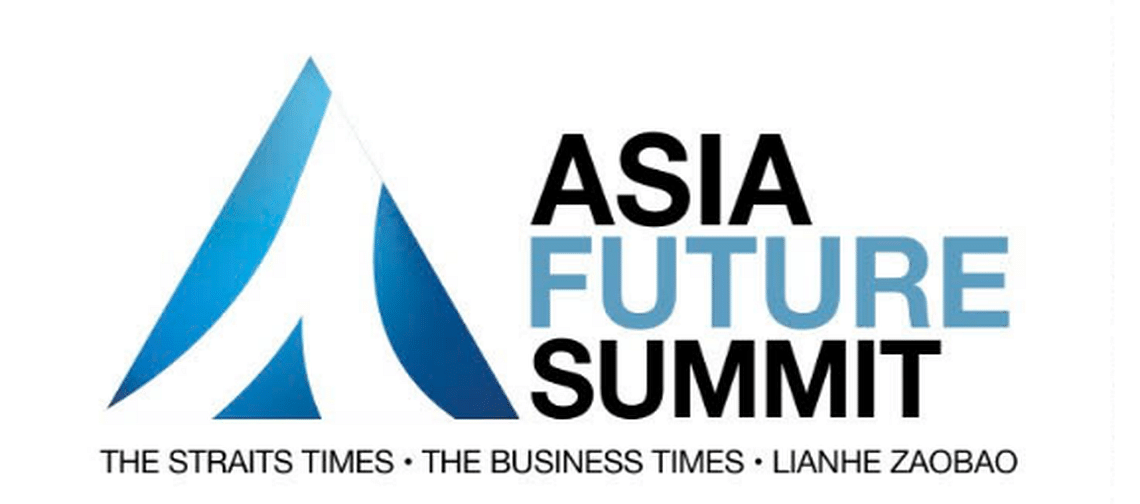SINGAPORE - Instead of imposing systems of governance on other nations, countries should look for ways to collaborate on common goals to advance together, said Deputy Prime Minister Heng Swee Keat on Wednesday.
He was speaking on a panel at the Asia Future Summit 2023, and responding to a question on whether it was possible for young people on both sides of the Taiwan Strait to develop a deep understanding of each other’s political and social systems, and for Taiwanese students to accept that a direct election in mainland China might not be possible.
The other panellists were former Taiwan president Ma Ying-jeou and former Australian prime minister John Howard. The session, called Reflecting On Lee Kuan Yew’s Contributions To The Development Of Asia And Global Relations, was moderated by the editor-in-chief of the Chinese Media Group at SPH Media Lee Huay Leng.
Mr Heng said that sometimes countries seek to make another country in their own image, but every country will have its own history, culture and development. Even democracies have significant differences in the way their government is formed, as well as how their policy initiatives are mediated and presented to the electorate.
“In the face of all these major challenges around us, I think there is room for us to look at different ways in which different governance systems can best serve the people,” he said.
Mr Heng added: “What we need to focus on in terms of country-to-country relations, is where the common space for which we can work and advance together is, and not to make a clone of another country – because imposing our values and our system of doing things may cause more discord and reduce the space for cooperation.”
In line with the commemorative theme of the panel, each of the panellists brought up anecdotes of their interactions with Mr Lee, and how he earned their respect.
Mr Heng, who served as Mr Lee’s principal private secretary between 1997 and 2001, said the founding prime minister’s views were well regarded because of his ability to look at each country’s long-term interests instead of immediate concerns – and to see how, in the pursuit of their long-term interests, countries can also find common space to work together.
“Sometimes you react in a certain way and you will get brownie points from the electorate. But that is not how (Mr Lee) feels that a country should be governed in the long run, because at the end, what matters is whether your people achieve a better life,” said Mr Heng.
He recalled the 1999 United States bombing of the Chinese embassy in Belgrade, and how both then Secretary of State Madeleine Albright and Chinese Foreign Minister Tang Jiaxuan asked to meet Mr Lee when they were in Singapore. Mr Lee advised both countries to think of their long-term interests and accept the US explanation that the bombing was accidental.
At the time, China was in intensive negotiations with the US to enter the World Trade Organisation, and Mr Lee encouraged the representatives not to start fighting over the incident and make enemies of each other.
“What was remarkable, I think, is that he had a clear view of what the solution should be in handling this relationship. In that particular moment, how do you resist taking short-term measures which may be popular with the people, but which may actually harm each country’s long-term interest?
“So, by taking that strategic view of the countries’ long-term interests and how countries can work together, I think he was very persuasive to both parties,” said Mr Heng.
Mr Howard echoed this sentiment and said: “Whatever his views may have been, he was able to detach himself and see it in a broader context. He knew that to survive and prosper, Singapore had to become very much, as a nation, a citizen of the world.”
Mr Ma recalled that Mr Lee was very concerned about cross-strait relations, and keen to have peaceful developments for the welfare of the people. “Mr Lee Kuan Yew’s views resonated deeply with me, and later on when I was the president of Taiwan, I also used this as a guiding principle in our cross-strait relationship development; no matter what we do, (we) must consider the welfare of our people,” he said.
Mr Ma added: “(Mr Lee) was clean. He was determined. He was diligent. He loved his people. He was also very wise towards the relationships between Taiwan as well as mainland China, I think we should really pay attention to the wisdom that he has espoused.”
Asked which of Mr Lee’s predictions on the global stage are still relevant, Mr Heng noted, among other things, Mr Lee’s belief that it is possible for America and China and countries around the world to coexist peacefully. “What is important is for each to look for what are the areas of common interest; even as you compete, you need to look for areas in which you can collaborate. His view has always been that it’s not a zero-sum game,” he said.
Mr Heng stressed the importance of having global peace and development for all countries, particularly for a small country like Singapore. Yet he acknowledged the reality that bigger countries will always want a bigger say.
“The question is, how do you craft global norms for everyone to abide by, and serve the long-term interests of all,” he added.
On the continuing value of Asean, and what trade-offs need to be made in order to ensure that the region continues to be a peaceful environment amid the great power rivalry between the US and China, Mr Heng said he was glad that Asean states have made clear statements about remaining neutral.
“That trusted neutrality, where we welcome different parties to work closely together with us without taking sides, is an important aspect. And when the 10 member states hold this position, it is a lot more powerful and more effective than one or two member states taking their own positions.
“So I would say I’m optimistic, and would urge Asean member states to work more closely together.”
The Asia Future Summit is an inaugural collaboration between The Straits Times, Lianhe Zaobao and The Business Times. It continues on Thursday at The Ritz-Carlton, Millenia Singapore.
- OCBC is the presenting sponsor for the Asia Future Summit 2023. The event is also supported by GuocoLand and Kingsford Group.




